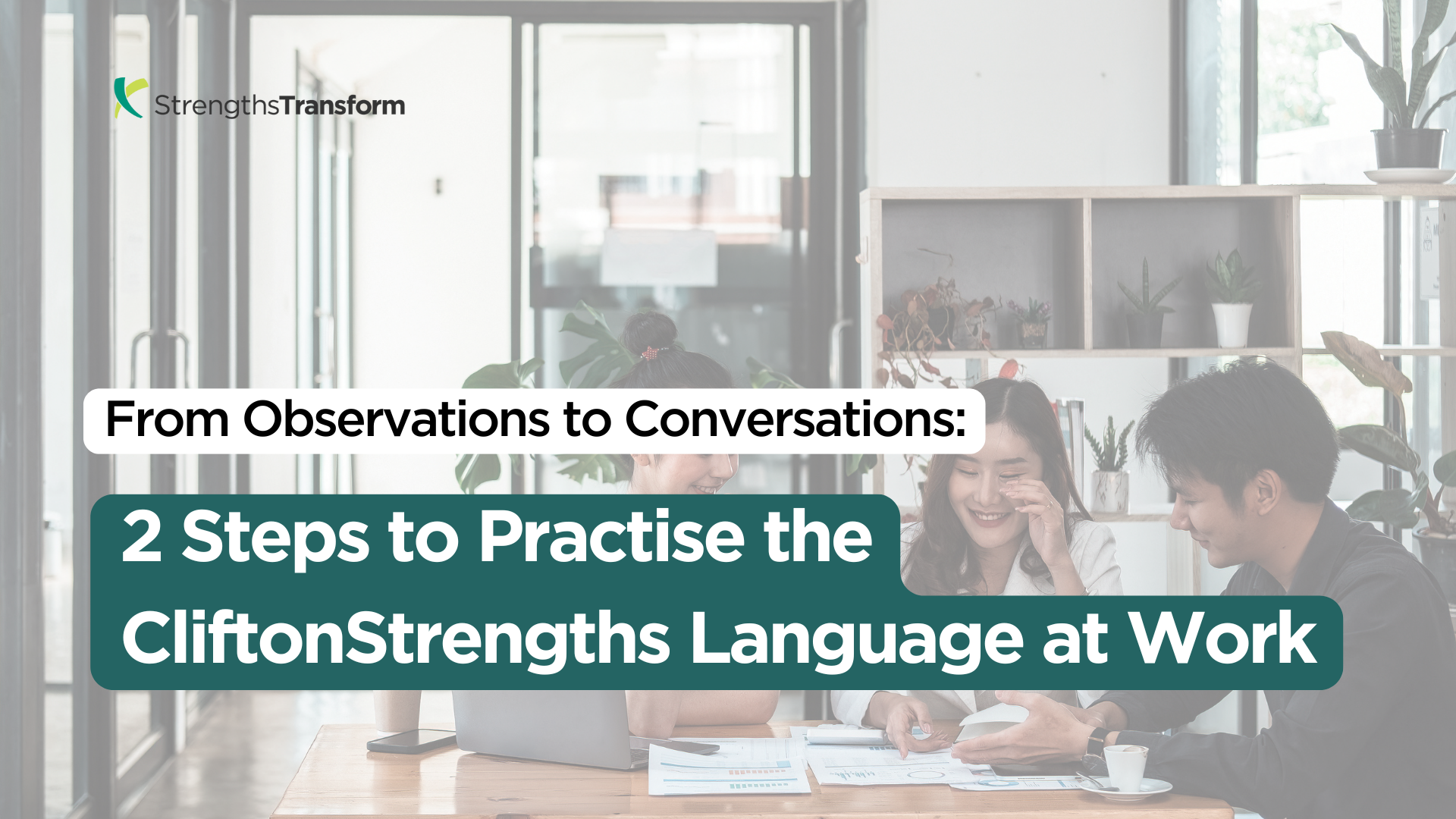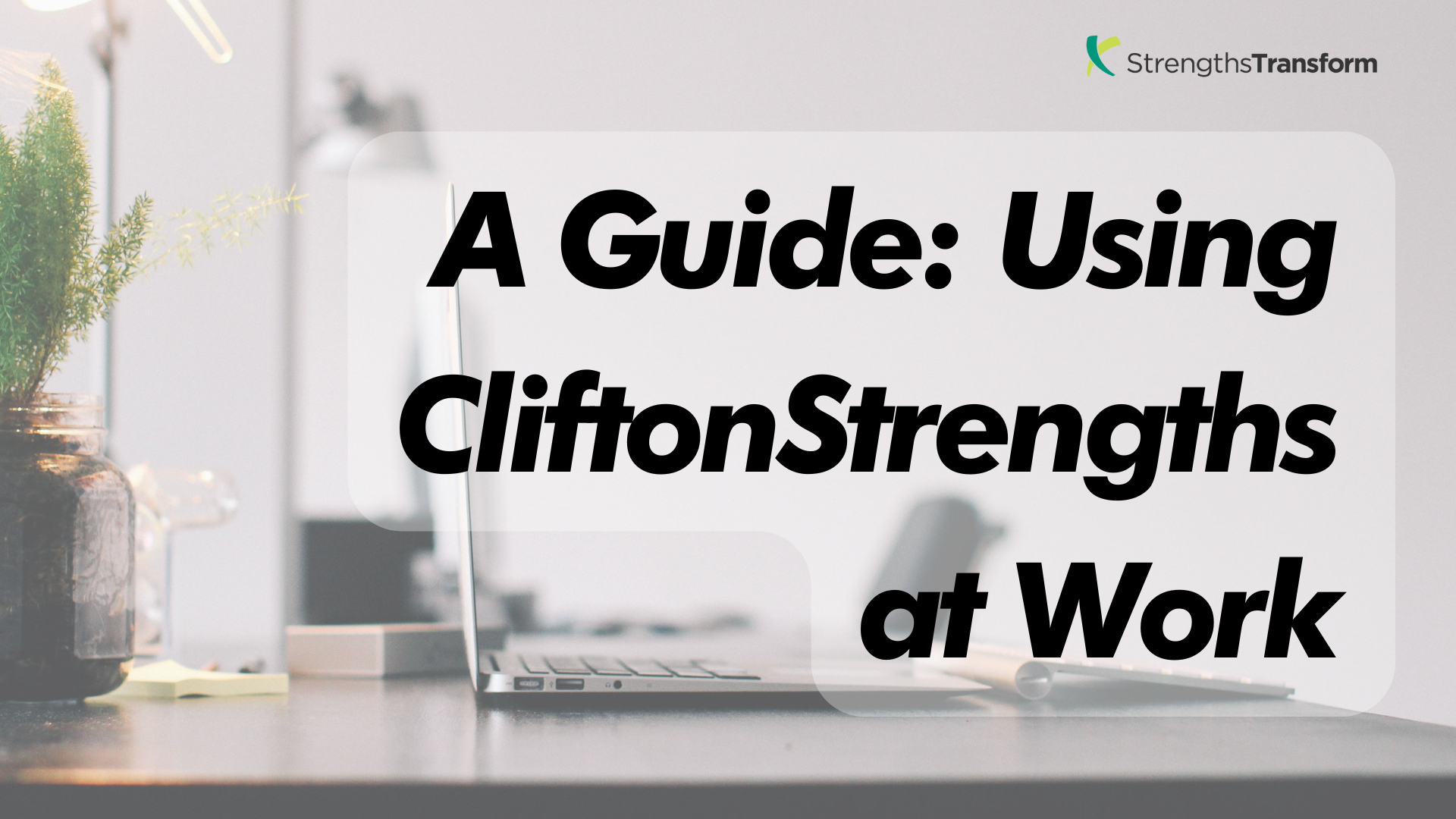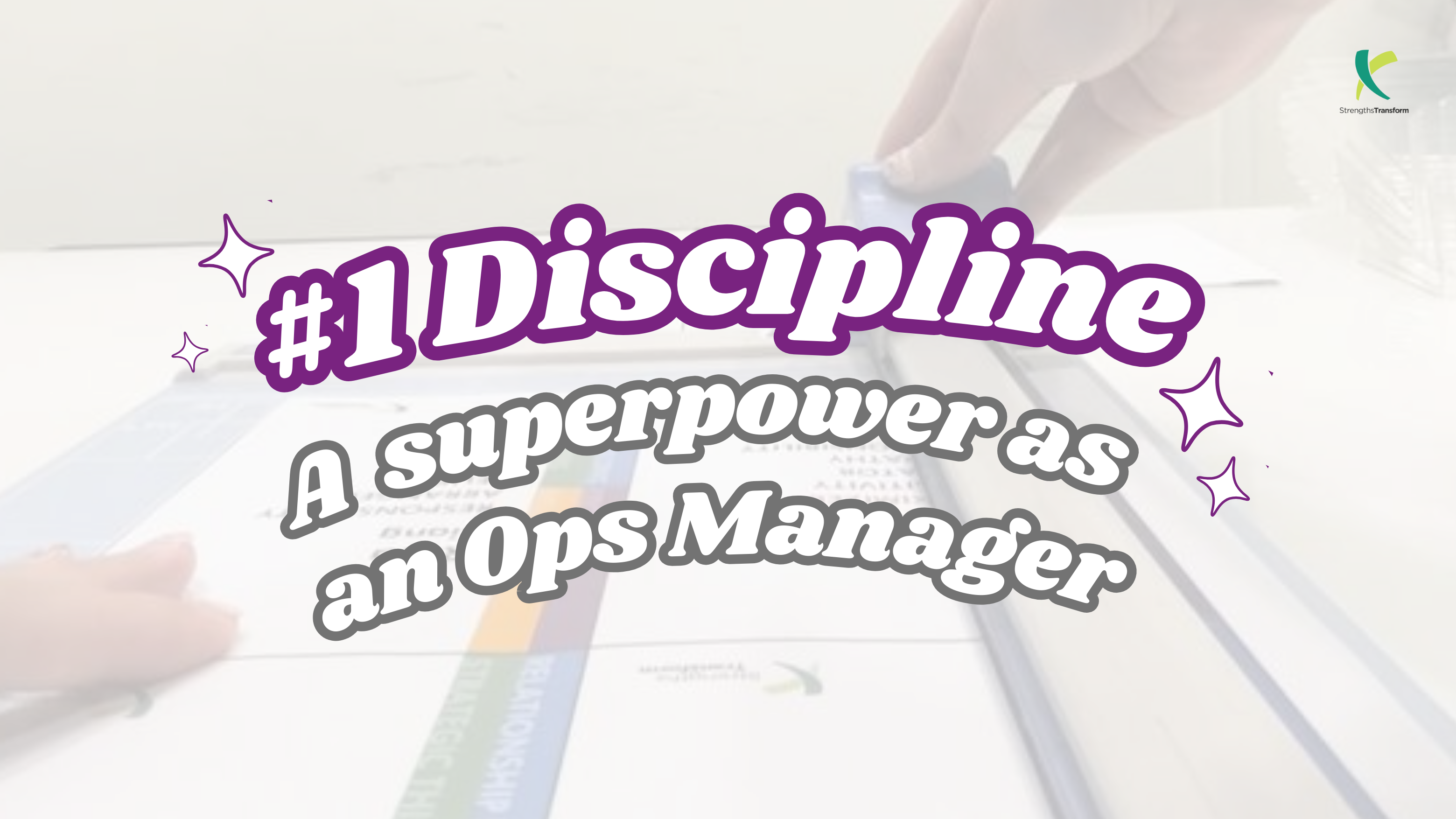Protected: Identify Talents – High5 Strengths Description Cards

There is no excerpt because this is a protected post.
Read more →
There is no excerpt because this is a protected post.
Read more →
In a CliftonStrengths workshop session, our workshop coaches from StrengthsTransform, often define talent themes as “naturally recurring patterns of thought, feeling or behavior that can be productively applied.”
We often follow up with – “Behaviour is what we can see, while thoughts and feelings have to be disclosed.”
This article seeks to bring you through a two-step approach to practise the CliftonStrengths language at work. Our hope is that this might benefit those who want to continue building on the CliftonStrengths language after a workshop.
Step 1: Observing Talents in Behaviours
Step 2: Initiating Conversations
Step One: Observing Talents in …
Read more →
How do I apply my CliftonStrengths at work? This is the most common challenge faced by individuals. Coach Victor Seet writes about 3 areas at work that individuals can use their strengths – performance management, relationship management and collaboration
Read more →
There is no excerpt because this is a protected post.
Read more →
The CliftonStrengths assessment is known for helping people to “find their strengths” and figure out ways to excel.
However, an often understated priority is to use the profile to see our personal blind spots.
Afterall, we cannot act on what we do not see.
From the 57,000 clients we’ve served over the past 10 years at StrengthsTransform, the most impactful and life changing returns come from helping clients see and manage their blind spots – because it prevents failures.
It is also a critical component for
…
Read more →
Bossy, selfish, arrogant. These are the names I have been called growing up. The young girl who refused to allow her parents to help her wear her shoes, who ran and roughhoused with her Primary 1 classmates, who didn’t quite understand why others were afraid of her even when they never spoke to her before, actually had the Command and Self-Assurance talents. With both talents amongst the rarest in the world, it’s no wonder that there are many misconceptions about these talents – much less how they work together!
“Mama, I thought Kor (older brother) said he wanted to eat
…
Read more →
(This article is written by Shayln, the Programme & Operations Manager at StrengthsTransform. Learn more about Shayln’s Top 5 Talent Themes: Discipline, Responsibility, Harmony, Connectedness, Consistency)
Discovering my CliftonStrengths is like doing an MRI of my brain. I’m able to see why I think, feel, and behave differently from others, and what makes me, me!
The “OCD” Girl
As a child, I take pride in being good at the “Spot the Difference” games. It’s somehow easy for me to see details in each picture. Just like a microscope, I easily zoom in into the minute and fine-detailed things.
I’ve also
…
Read more →
“When you’re interviewing for a job, you’re marketing yourself,” – William Vanderbloemen.
The concept of marketing oneself is not new in the realm of job searching. The ‘marketing’ process often begins with your cover letter, resume and personal branding on social media platforms such as Instagram and LinkedIn. Those are the first steps to brand yourself as a favourable and sought-after employee.
What follows after is the most crucial yet dreaded process for some: Interviews.
What constitutes ‘good’ interview skills?
Hallmarks of a good interview:
…
Read more →
(This 7-part article series was written by David, our trainer at Kingmaker & StrengthsTransform.)
If you perceive the application of strengths as a demanding commitment because it requires the transformation of not just yourself but also how a company functions, then you have truly grasped the power of strengths! This inertia towards CliftonStrengths is entirely legitimate and valid!
But this shouldn’t come as a surprise. CliftonStrengths claims to be a tool used for robust and long-lasting transformation, which is essentially why implementing it might be tough
Read more →
(This 7-part article series was written by David, our trainer at Kingmaker & StrengthsTransform.)
“I don’t need CliftonStrengths because the validation of each other’s strengths is already ingrained in our culture”.
Many companies have an “appreciative” culture where colleagues point out and commend each other’s strengths and contributions, yet without the need to use a tool like CliftonStrengths. To this point, I’ll like to highlight two benefits of using CliftonStrengths for peer and work validation.
Read more →